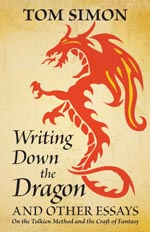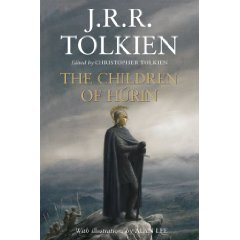The paperback edition of Writing Down the Dragon is now for sale at Amazon.com, as well as the Amazon stores in the U.K., France, Germany, and Italy. Thanks to the magic of Kindle Matchbook, if you buy the paperback, you can download a free copy of the Kindle ebook as well. Yes, you can eat your copy and still have it! Cheap at half the price!
WRITING DOWN THE DRAGON now available from the CreateSpace Store
I am pleased to announce that Writing Down the Dragon has passed the final review at CreateSpace. The print edition is now available to order!
This handsome trade paperback (if I do say it myself) is available for $11.99 plus shipping from the CreateSpace e-store:
https://www.createspace.com/4924097
The book will be available from Amazon stores in the U.S. and Europe within the next week. Readers in other countries (including Canada, alas) should use the link above.
ETA: I discovered a minor formatting glitch in the interior layout. I have resubmitted the interior file, and the book has been temporarily removed from sale while the new file is being reviewed. I apologize to anyone who tried to buy the book today and could not.
ETA(2): And now the review is finished, and the book is once again available. It should be on Amazon proper within a few days.
The proof is in the proof!
This afternoon, quite unexpectedly, I was awoken from a sound nightmare (Fat Yuri of the KGB and his hired assassins were chasing me through the corridors of a large office building, and they were driving a big black limousine down the corridor) to the distinctive but hideous honk of the intercom in my flat. It turned out that the UPS man was at the outside door with a parcel for me; and this turned out to be the short-awaited* proof copies (2 ea.) of the printed edition of Writing Down the Dragon.
I am delighted with the quality of the printing, and the binding seems quite acceptable. The parchment texture in the background looks better in print than it did on the ebook cover, and there are no visible halftone dots anywhere. This, I believe, shows the wisdom of my decision (taken with the help of Sarah Dimento) to use only vector art for my covers, and not dive into the stagnant pool of Photoshopped stock art as so many people have done with their book covers.
I am sitting down to a hearty meal of Papa John’s pizza (to celebrate the occasion) and preparing to read the proof straight through for last-minute errors; also for the novel experience of reading one of my books on paper in a codex binding, as if I were one of the glorious ink-stained hacks of old. I shall be a Retro Hipster for the evening; after which, for my next trick, I shall brilliantine my hair, ride a penny-farthing bicycle up and down the street, and then stab myself brutally but accidentally in the stomach twenty-three times whilst trying to shave with a straight razor.
If I survive these things, and if the final read-through reveals no ‘issues’, I shall make the print edition of Writing Down the Dragon available to the public in the next few days.
ETA: In reading the proof copy straight through, I found one small formatting error and one textual error. (I do not guarantee that there are no others, alas.) I corrected these in the InDesign file and resubmitted to CreateSpace. The review process will have to be repeated at their end, though I do not intend to order fresh proof copies for such tiny changes; I will just use the online proofing function to make sure that the affected pages are correct. This will delay the release of the printed book a day or two longer.
*That is totally a word, dude.
Upcoming posts, and an appeal for formatting help
In the past week, I have bought (or, more accurately, received — some of them were paid for weeks ago) nine books, all of which I want to write about in these pages. These are Language of the Night, by Ursula K. LeGuin; The Discarded Image, An Experiment in Criticism, and That Hideous Strength, by C. S. Lewis; and the five volumes of the Chronicles of Prydain, by Lloyd Alexander. The Prydain books are replacements for copies that went missing in a house-move several years ago; the others I have not owned before, though I had previously read That Hideous Strength and several of the essays collected in Language of the Night. I have now read or re-read all of the books except the LeGuin, which only arrived this afternoon.
The other night I began a piece on An Experiment in Criticism, but it has grown much larger than I intended, and is desperately ill-focused, so I shall have to go back and prune it severely. That will probably be the first piece to appear.
In other news, Writing Down the Dragon is being held up, because I have developed a desperate fear of formatting errors. I still have never been able to figure out why The End of Earth and Sky displays on certain readers without any paragraph indents; the HTML is immaculate as far as I can tell. Wendy S. Delmater has suggested that I send out a cry for help. I can’t afford any of the reputable ebook formatting services.
So I am asking some of you, my 3.6 Loyal Readers*, to look over the rough ebook conversion and tell me before publication if it contains any visible formatting glitches. I will need to test the MOBI file on an e-ink Kindle, a Kindle Fire, and in the different Kindle apps for Android phones and tablets, iOS, PC, and Mac; some of these I can do myself, but I simply haven’t got access to all the different devices. If you are willing to test my formatting, please leave a comment to let me know. I regret that I can’t offer any payment for your trouble except a free copy of the ebook, but I shall certainly do that much.
Thanks in advance to all.
*Possibly even more than 3.6, in these latter days. Strange are the ways of Providence. I thank you all.
The rhetoric of Middle-earth
This essay is included in my collection, Writing Down the Dragon. It has previously appeared on LiveJournal.
Do not laugh! But once upon a time (my crest has long since fallen) I had a mind to make a body of more or less connected legend, ranging from the large and cosmogonic, to the level of romantic fairy-story — the larger founded on the lesser in contact with the earth, the lesser drawing splendour from the vast backcloths — which I could dedicate simply to: to England; to my country.
— The Letters of J. R. R. Tolkien, no. 131 (to Milton Waldman)
The business of finding and resolving cruxes, of course, is not the only trick in the philologist’s bag, or the only one that Tolkien brought to his imaginative writing. A philologist, in the nature of things, must have a keen nose for style, for the sounds and usages of words. A genuine document is always rooted in the dialect of a particular time and place, modified by the author’s choice of words, rhythms, and turns of phrase. [Read more…]
The Children of Húrin, by J. R. R. Tolkien
This review is included in the essay collection, Writing Down the Dragon.
As Tom Shippey rightly points out, Tolkien has not been well served by his critics. On the one hand you have the literati, the self-appointed Guardians of the Tradition, who have never overcome their collective indignation at the success of The Lord of the Rings, but somehow have never quite died of collective apoplexy either. This contingent is ably represented, this time out, by Marta Salij of the Detroit Free Press and Tom Deveson of the Times. I shall come back to Ms. Salij’s brand of incomprehension later, but here is a fair sample of Mr. Deveson’s hard work in establishing his credentials as one of those who just don’t get it:
Turin is captivated by ‘the Sindarin tongue’, ‘older, and . . . richer in beautiful words’. Tolkien endorses this equation of archaism with beauty, but doesn’t show why it is more desirable to write ‘dwelt’ than ‘lived’, to describe a sword that ‘would cleave all earth-dolven iron’ or to have people say, ‘Await me here until haply I return.’
After reading that, I spent half an hour combing through The Children of Húrin line by line, looking for the sentence that Mr. Deveson found so needless and offensive. It is dialogue, of course, Morwen’s last words to her daughter Niënor before setting out to find her son. That is a perilous quest, and indeed a hopeless one, as Thingol and Melian, her hosts and protectors, have warned her. But as we so often do, she makes a decision in a moment of high emotion and then sticks to it out of stubborn pride, letting no counsel sway her. [Read more…]
1977: Lost tales, unattained vistas
Review: The Silmarillion, by J. R. R. Tolkien
This review is included in the collection Writing Down the Dragon.
The fantasy boom of 1977 would never have happened without The Lord of the Rings to blaze the trail, and it probably would not have happened at that time but for the fever of anticipation for The Silmarillion. When that book finally appeared, four years after its author’s death and forty years after it was first offered to a publisher, legions of fans rushed out to buy it, and thousands of them never finished it. I cannot think of any other instance in which an author engendered such high expectations for his next book, and produced a book so wildly incongruous with those expectations. It was as if a stadium full of people had come to see a football match, and were treated to an ice ballet instead. [Read more…]
The Terminal Orc
This essai is included in the collection Writing Down the Dragon.
If the powers of Morgoth and the nature of the Elves gave Tolkien endless trouble in preparing The Silmarillion for publication, the problem of the Orcs nearly frightened him into giving up the attempt. How this happened sheds light on some interesting facets of Tolkien’s creative process, the mentality of his critics, and the ethics of fantasy in general. [Read more…]









Recent Comments